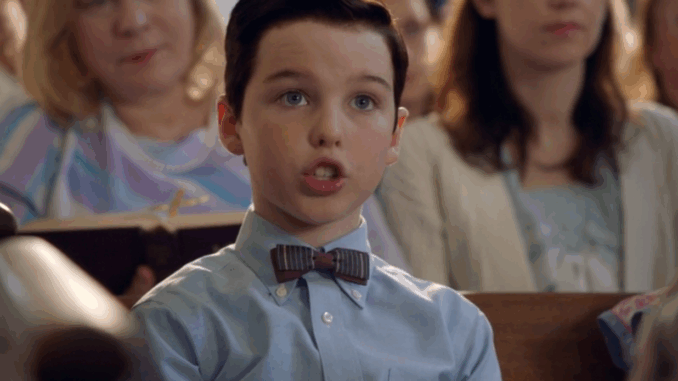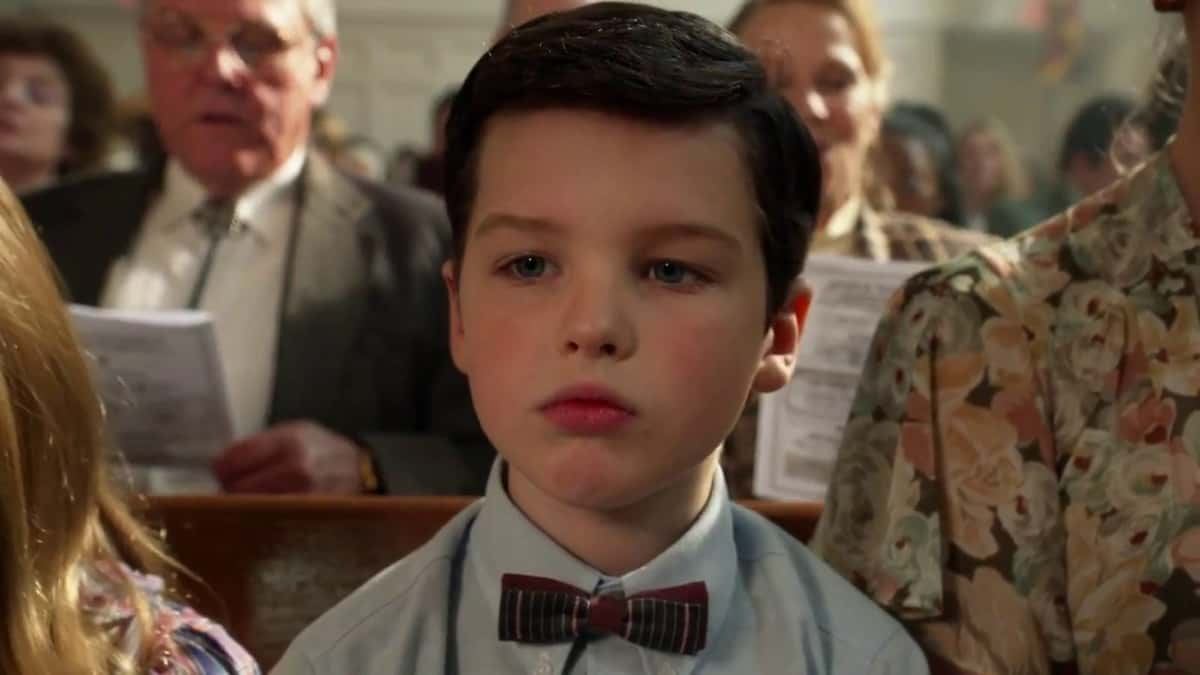
From its very first episode, Young Sheldon introduced us to a curious child with a deep love for science living in a deeply religious household. It was a setup ripe for conflict — but instead of taking sides, the show did something revolutionary: it allowed both science and faith to coexist, wrestle, and evolve.
As the series wraps its seven-season run, one of its most important — and perhaps most underappreciated — contributions to television becomes clear: it gave audiences a new way to think about belief.
The Atheist in the Church Pew
Sheldon Cooper is many things: brilliant, socially awkward, confident, and obsessively logical. But he is also, by his own definition, an atheist. His deep trust in science often clashes with the beliefs of his devout Christian mother, Mary Cooper.
Yet week after week, Sheldon sits through church services, challenges Sunday school teachers, and even gets baptized — not out of personal belief, but out of love and respect for his family.
This balance between personal conviction and family loyalty is one of the show’s most compelling dynamics. It doesn’t reduce religion to superstition or science to cold facts. Instead, it explores the friction — and sometimes harmony — between the two.
Mary Cooper: Faith, Strength, and Complexity
Zoe Perry’s portrayal of Mary Cooper became one of the emotional pillars of the series. As a mother raising a child whose worldview is fundamentally different from her own, Mary walks a fine line between discipline and compassion.
What makes her character extraordinary is that she doesn’t reject Sheldon’s intellect or try to suppress his ideas. Instead, she tries to guide him with patience, reminding viewers that faith is not just about dogma — it’s also about humility, hope, and unconditional love.
In one memorable scene, Mary says:
“I don’t need you to believe what I believe. I just need you to let me believe it.”
That quiet moment struck a chord with viewers from all walks of life.
Science with a Soul

While Sheldon often uses scientific knowledge as a shield, the show doesn’t let him hide behind formulas. His logic can’t solve every problem — especially emotional ones. And as the series progresses, Sheldon begins to grasp that truth exists outside of the lab as well.
He learns empathy from Missy, resilience from Georgie, and moral complexity from Meemaw. Through them — and his own failures — Sheldon slowly evolves into a young man who understands that knowledge is not the same as wisdom.
Young Sheldon gently reminds us that science without empathy can be isolating — and faith without compassion can be rigid. The goal, the show seems to say, isn’t to pick one over the other, but to find meaning in both.
Sparking Real Conversations
One of the series’ lasting impacts may be the discussions it inspired. Fans took to Reddit, YouTube, and blogs to debate episodes where Sheldon questions the Bible, asks about the Big Bang in church, or argues with Mary about miracles.
But these debates were rarely hostile. More often, they were reflective. The show didn’t preach. It posed questions — and allowed viewers to sit with the discomfort.
In an era of polarization, Young Sheldon created a space for thoughtful dialogue between people who don’t always agree — and that’s no small feat.
A Rare Nuanced Portrayal in TV
American television has long struggled to depict religion without caricature. Faith is often shown as either blind obedience or dangerous extremism. But Young Sheldon took a different path.
It portrayed the church community as flawed but earnest. Pastor Jeff is goofy but sincere. Youth group is awkward but sometimes helpful. Even the fire-and-brimstone moments are balanced by genuine attempts at connection.
Similarly, science is not portrayed as the ultimate answer to everything. Sheldon’s knowledge alienates him. His theories don’t stop him from feeling loss, confusion, or loneliness.
The show resists easy answers — and in doing so, offers something far more valuable: perspective.
Final Thoughts
In many ways, Young Sheldon is a show about belief — belief in God, in science, in family, in yourself. And it’s a show about how those beliefs are tested, questioned, and reshaped over time.
It never asked viewers to pick a side. It asked them to listen, think, and understand — to see faith and science not as enemies, but as different ways of looking at the same mysterious universe.
As the curtain falls on the Cooper family saga, one truth remains: Young Sheldon didn’t just make us laugh — it made us consider what we believe, and why.
